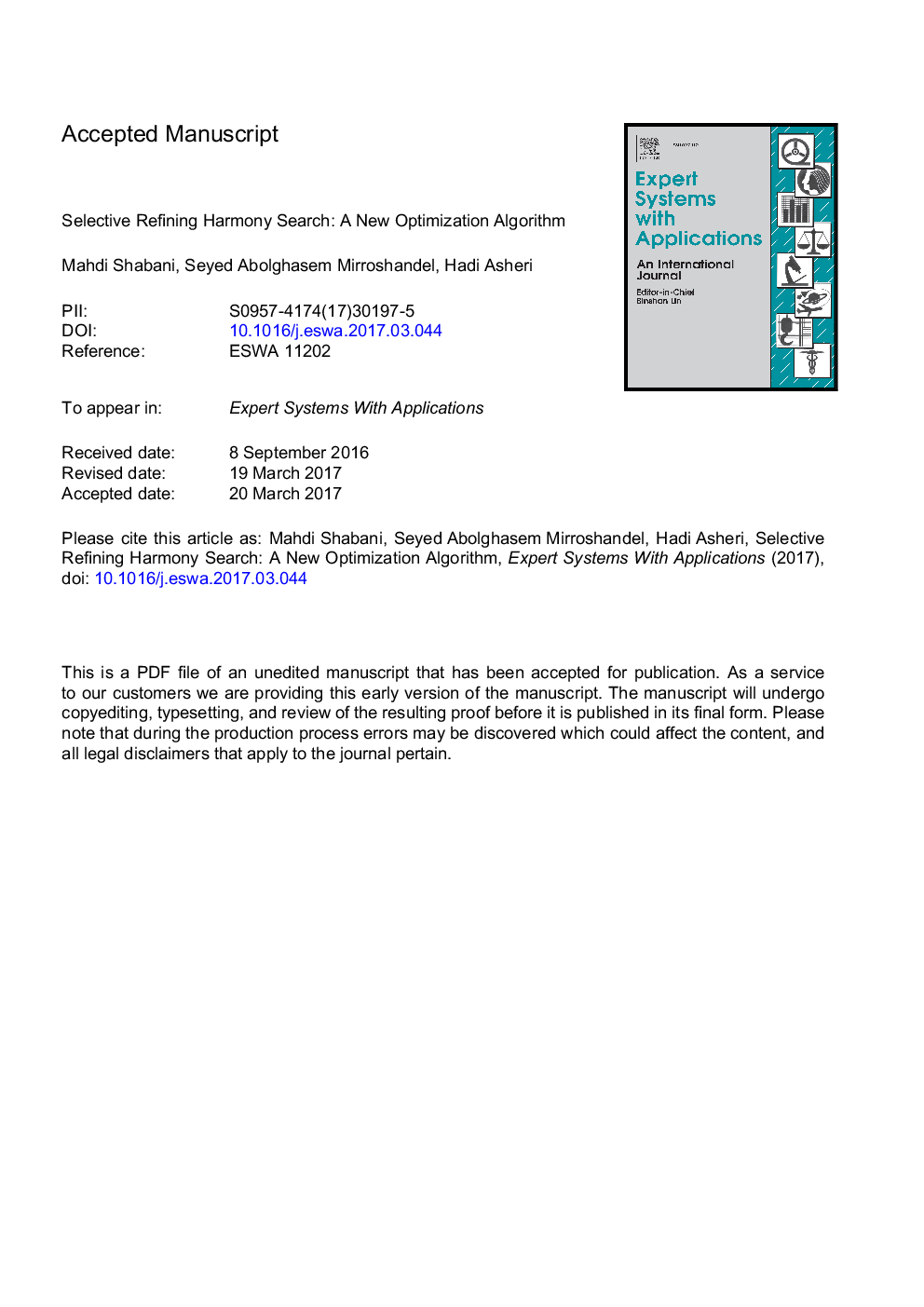| Article ID | Journal | Published Year | Pages | File Type |
|---|---|---|---|---|
| 4943372 | Expert Systems with Applications | 2017 | 34 Pages |
Abstract
While music improvisation is an NP-hard problem, it has always been handled by musicians successfully. Harmony search is a class of meta-heuristics inspired by the improvisation process of musicians. Inexperienced musicians usually make several harmonies until they find the desired one. However, experienced musicians more rely on their knowledge and experience instead of brute-force searching for a desired harmony. When making a harmony, they are able to distinguish the undesired notes of the current harmony and just modify them instead of throwing away the total harmony and making a new one. This approach of experienced musicians was adopted in this paper to allow the harmony search algorithm to exploit the knowledge and experience accumulated in the harmony memory to refine current harmonies. The underlying algorithm is called Selective Refining Harmony Search in which a new harmony memory update has been utilized. The main differences between the proposed method and the original harmony search are the integration of selection in the improvisation step and introduction of refinement concept. The improvements provided by the proposed method originate from its superior ability to imitate the behavior of musicians in the sense that instead of total harmonies, decision variables are considered during the memory update process. This modification provided outstanding performance to minimize the objective functions of the underlying problems, while computational loads are also better than other methods in most cases. During refinement procedure, two new parameters were employed to make a trade-off between effectiveness and efficiency of the algorithm. During the experiments, the proposed method exhibited robust performance against its two new parameters. Several algorithms including original harmony search and its state-of-the-art variants were implemented to conduct comprehensive comparisons. All of the algorithms were evaluated over IEEE CEC 2010 suite, one of the well-known and challenging benchmark test sets. Several studies have evidenced that the utilization of harmony search has been fostered in diverse application fields. Thus, the improvements to harmony search algorithm provided by the proposed method makes it more efficient for those fields and possible to be employed for more challenging problems.
Related Topics
Physical Sciences and Engineering
Computer Science
Artificial Intelligence
Authors
Mahdi Shabani, Seyed Abolghasem Mirroshandel, Hadi Asheri,
